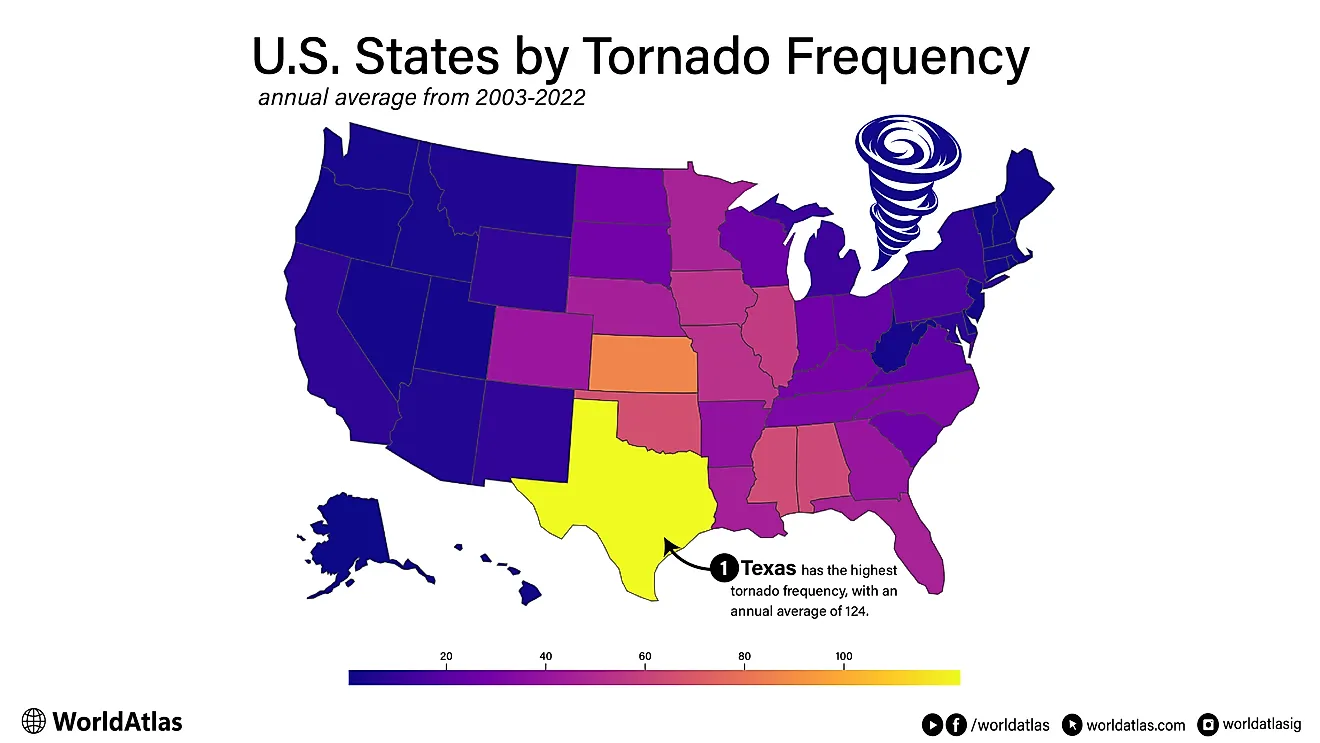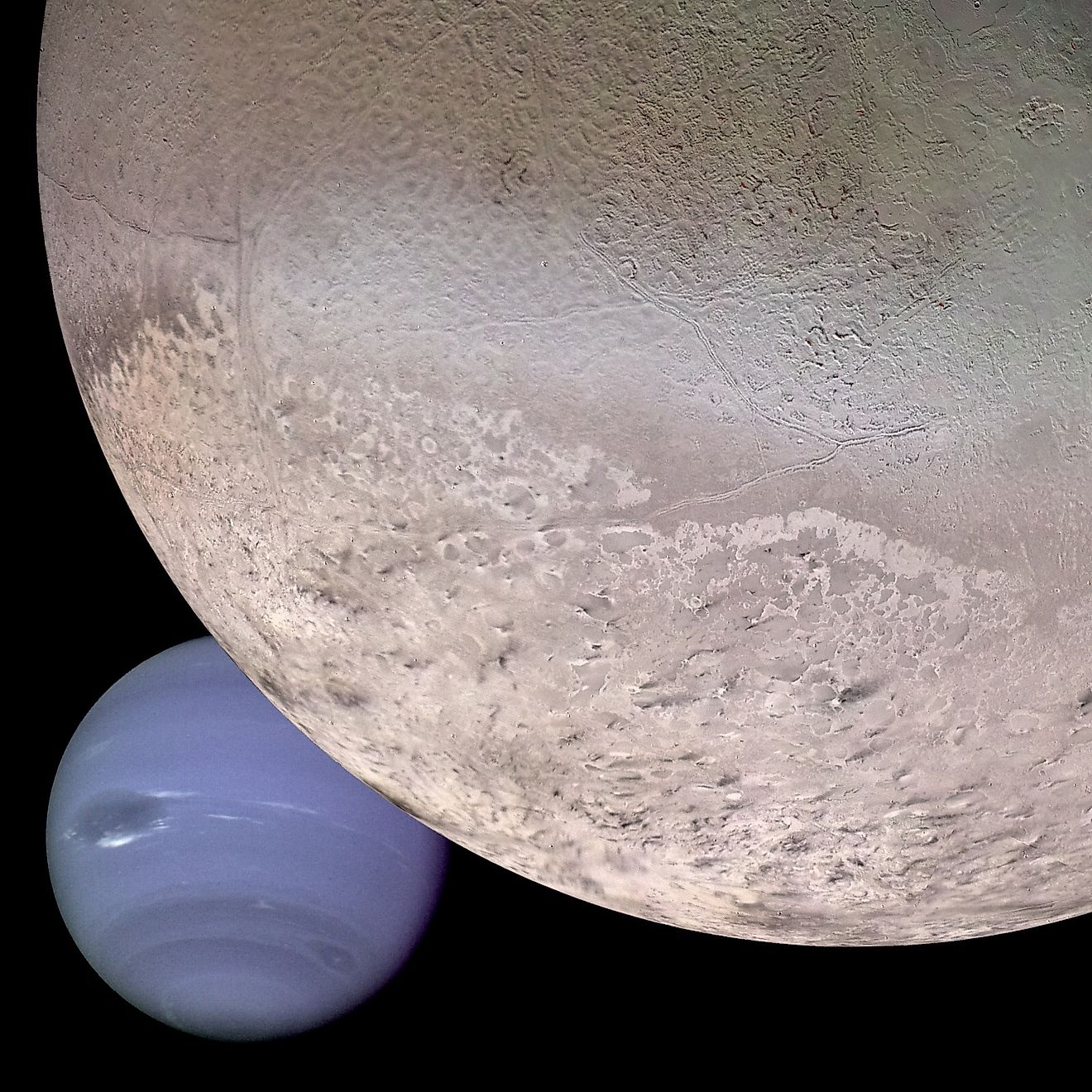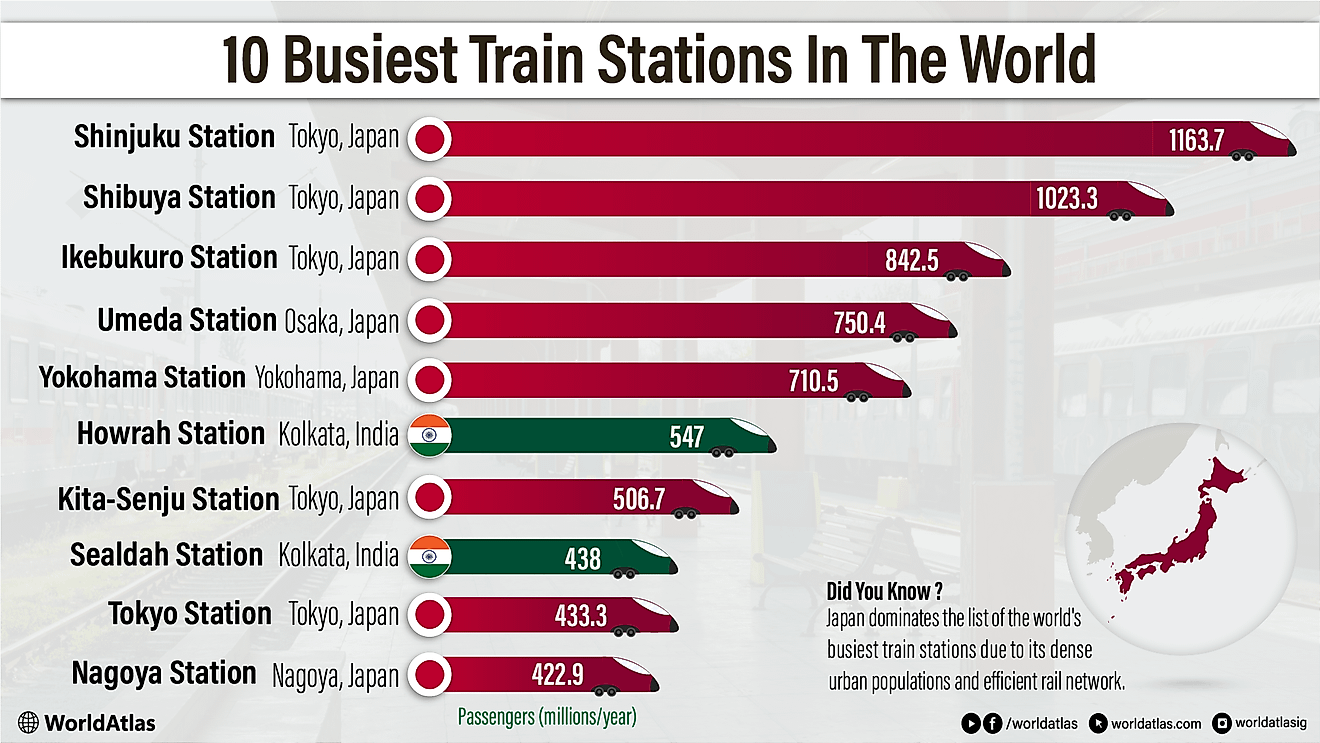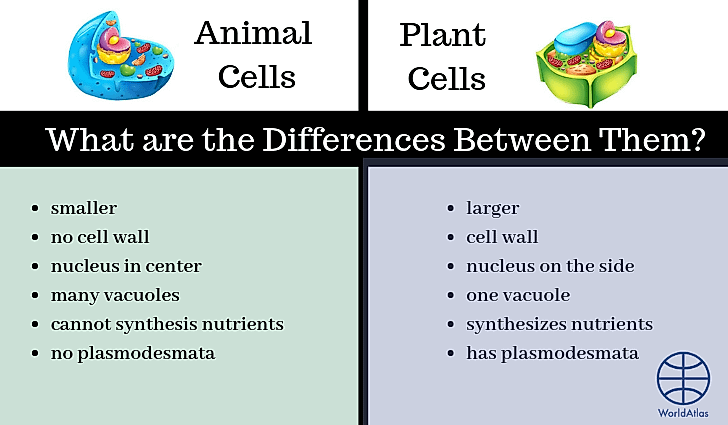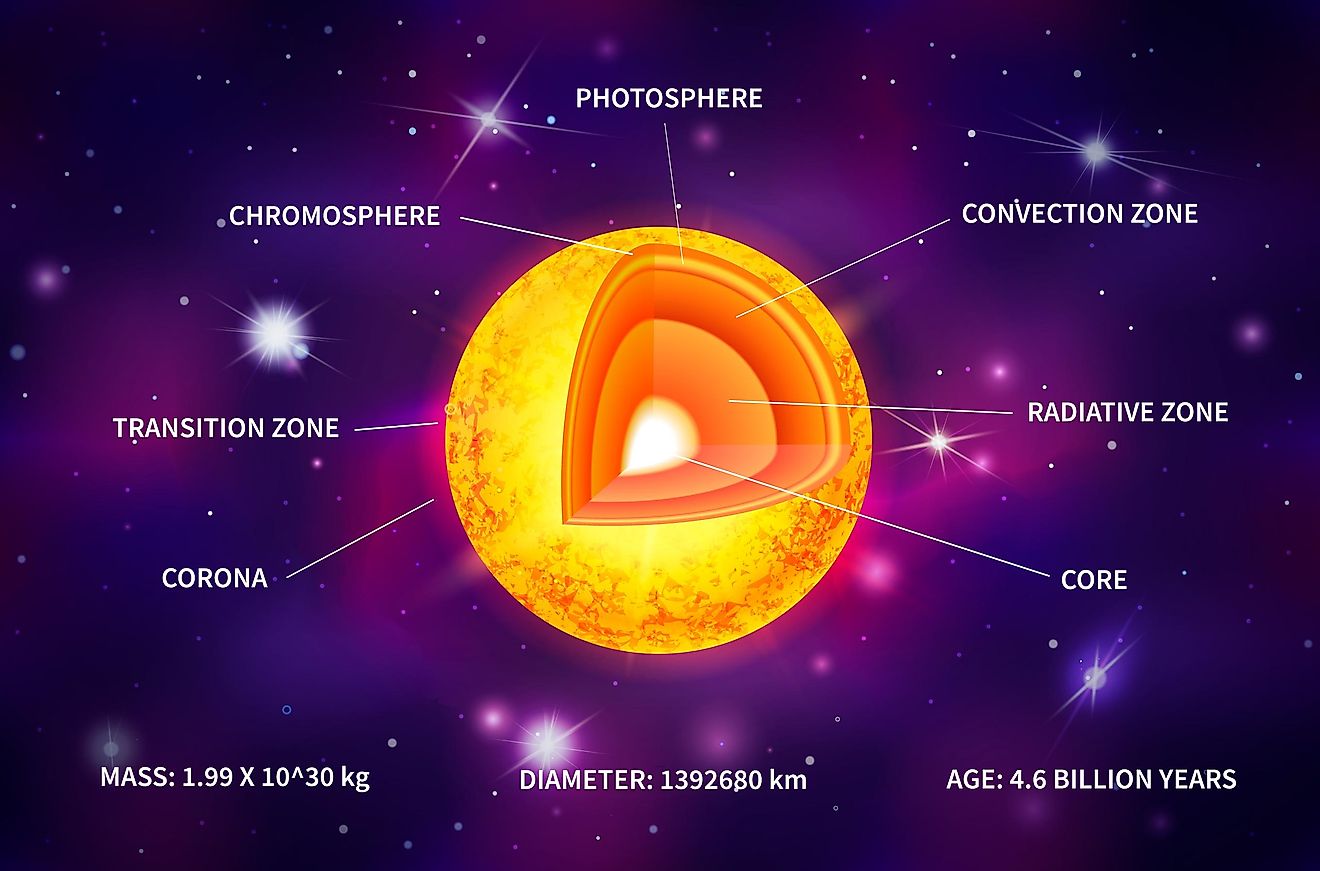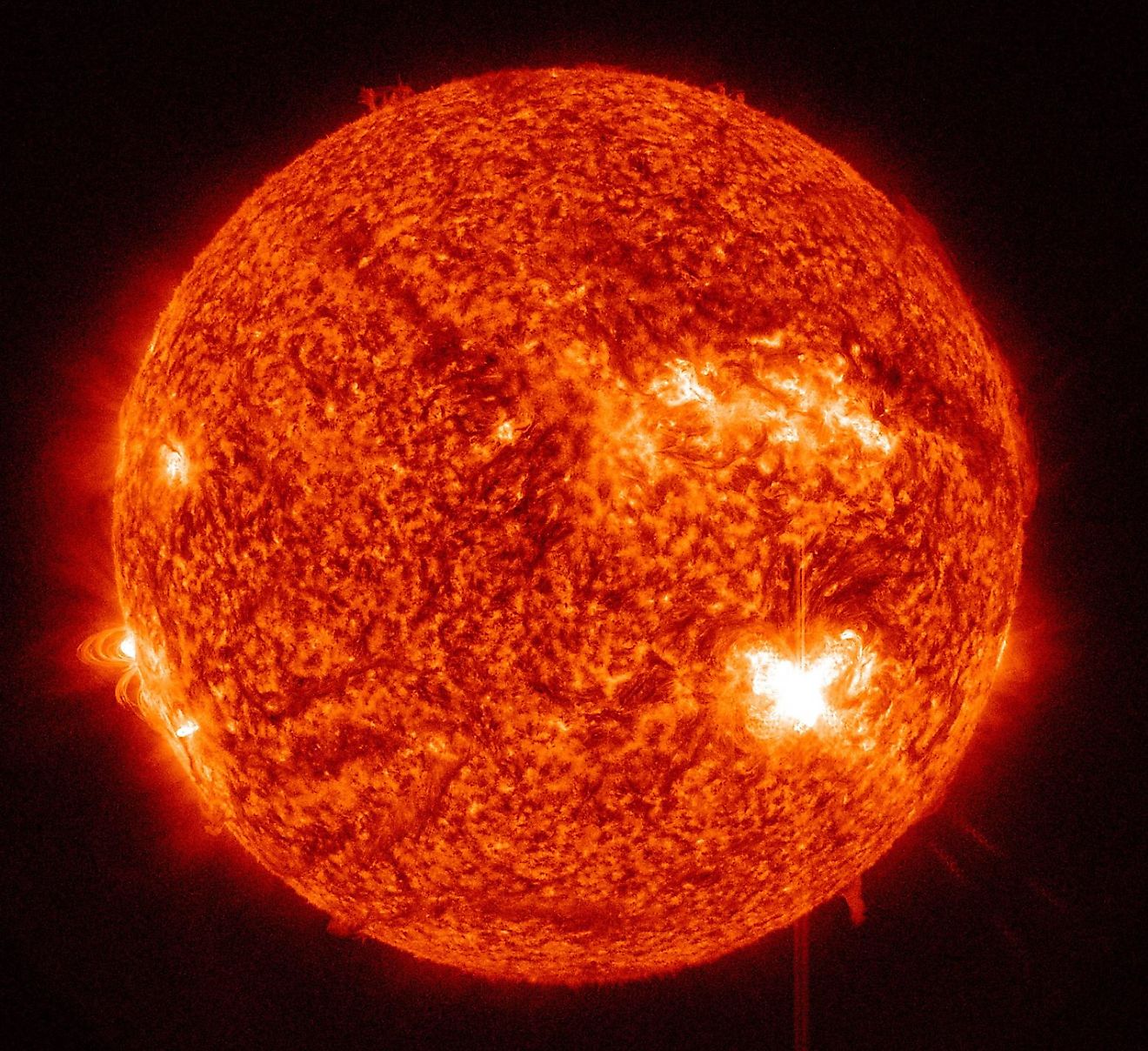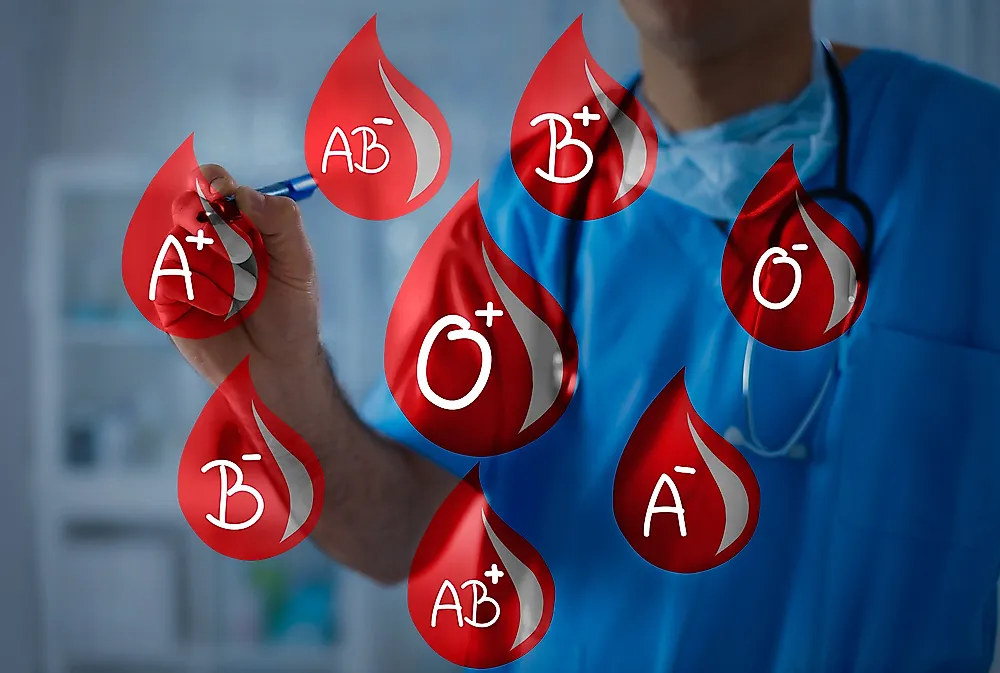
World Population By Percentage of Blood Types
- There are four main blood types: O, A, B, and AB.
- The universal donor is blood type O and the universal receiver is type AB. Type O is the most common in humans as well, but those with it can only receive type O.
- Rare blood types do exist, and people with these typically have to bank their own blood over time for use in an emergency.
It is important to know your blood type as it determines the type of blood you can receive in a blood transfusion. If you get in a car accident or suffer from some other medical problem that requires you to receive a blood transfusion, the donated blood needs to match your own. If it does not, this can be deadly. Your immune system could attack the red blood cells in the donated blood. Although this is rare, you can die from the reaction.
There are four main known blood types: A, B, AB, and O. In addition, each blood type has an Rh factor, or Rhesus factor, which is a protein found in your red blood cells. Your blood can be either RhD positive (+) if you have the protein, or RhD negative (-) if you do not.
Whether you have type A, B, AB, or O type is determined by the kind of antigens you have on your red blood cells. Antigens are something that triggers your immune system to produce antibodies against a foreign invader. If you have to type A blood, for example, you have type A antigens on your red blood cells and anti-B antibodies in your plasma.
Who is Compatible?
People with certain blood types are compatible for blood transfusions and certain others are not. Generally speaking, type O can donate to everyone, which means type O, A, B, and AB. Type A can only donate to type A and AB. Type B can donate to type B, and AB and type AB can only donate to type AB. Rh-positive blood can only be donated to people who have the Rh protein, and Rh-negative blood can be donated to both negative and positive. Because of this, type O- is known as the “universal donor.” The universal plasma donor is type AB. Plasma is what is left if you take away all the red and white blood cells and platelets, and it is 55% of blood's composition.
Healthy people can easily donate blood. It does not hurt and can help save someone’s life. To donate in the US, click here. To donate in Canada, click here.
You inherit your blood type from your parents, and as such, there are also some very rare types out there. Blood type distribution is also varied among different ethnic and racial groups. Since type O blood is that which can be used for anyone, it is almost always in short supply at hospitals. If you have it, you should think of donating. About 42% of the global population has type O+ blood but just 3% have type O-.
There are also over 600 other known antigens that have been found in people to date. The presence or absence of these can make a person have a rare blood type, and it could be that there are some that have yet to be discovered.
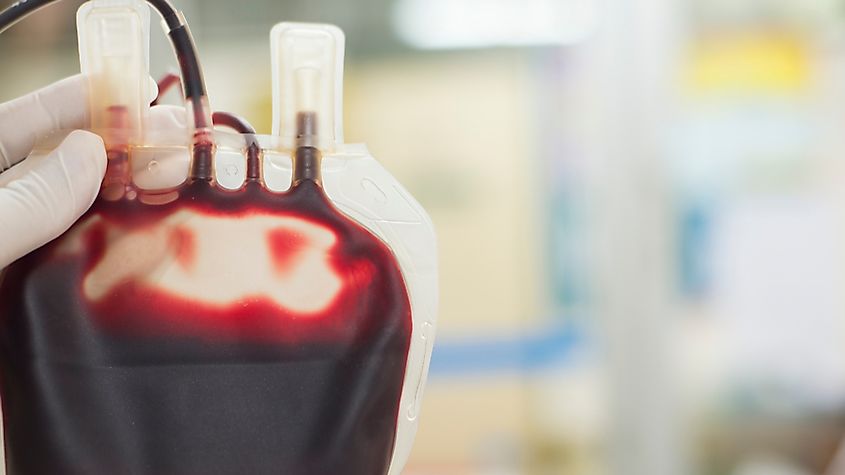
Race
Some blood types are more common in certain groups. Up to 53% of Latin Americans and 47% of African Americans have blood type O+. In comparison, only 39% of Asians, and 37% of Caucasians have this type. Blood type B+ is more common in Asians (25%) and less common in Latin Americans and Caucasians (both at 9%).
Pregnancy
Sometimes problems can occur when a mother’s blood does not match her baby’s. Problems arise when the mother’s Rh factor is negative but the baby is positive.
Normally, the mother’s blood and the baby’s won’t mix during pregnancy, but this can happen during birth. This means that the mother can develop antibodies against the baby’s blood type, and this can affect her next pregnancy. If the following baby is Rh-positive, the antibody can cross the placenta. If this happens, it can destroy the baby’s own red blood cells, rendering them anemic, which can threaten the life of the fetus.
Knowing your blood type is important not just for you, but for your family and your community. If you have a rare blood type or are a universal donor, consider donating. If a family member requires a tranfusion and your blood types match, you could potentially save their life by donating blood.
World Population By Percentage of Blood Types
| Rank | Blood Type | Percentage of the World's Population |
|---|---|---|
| 1 | O+ | 42% |
| 2 | A+ | 31% |
| 3 | B+ | 15% |
| 4 | AB+ | 5% |
| 5 | O- | 3% |
| 6 | A- | 2.50% |
| 7 | B- | 1% |
| 8 | AB- | 0.50% |
